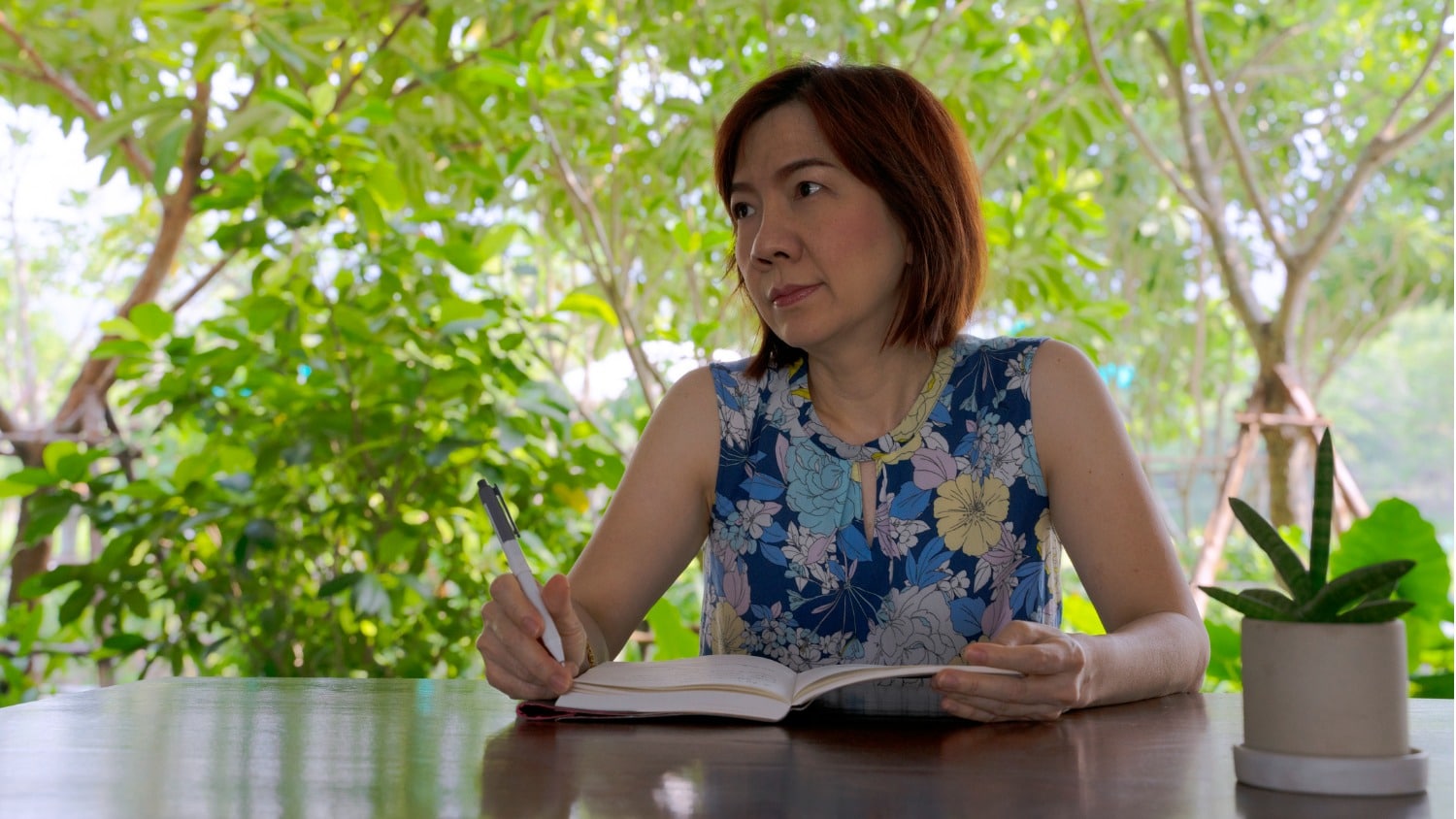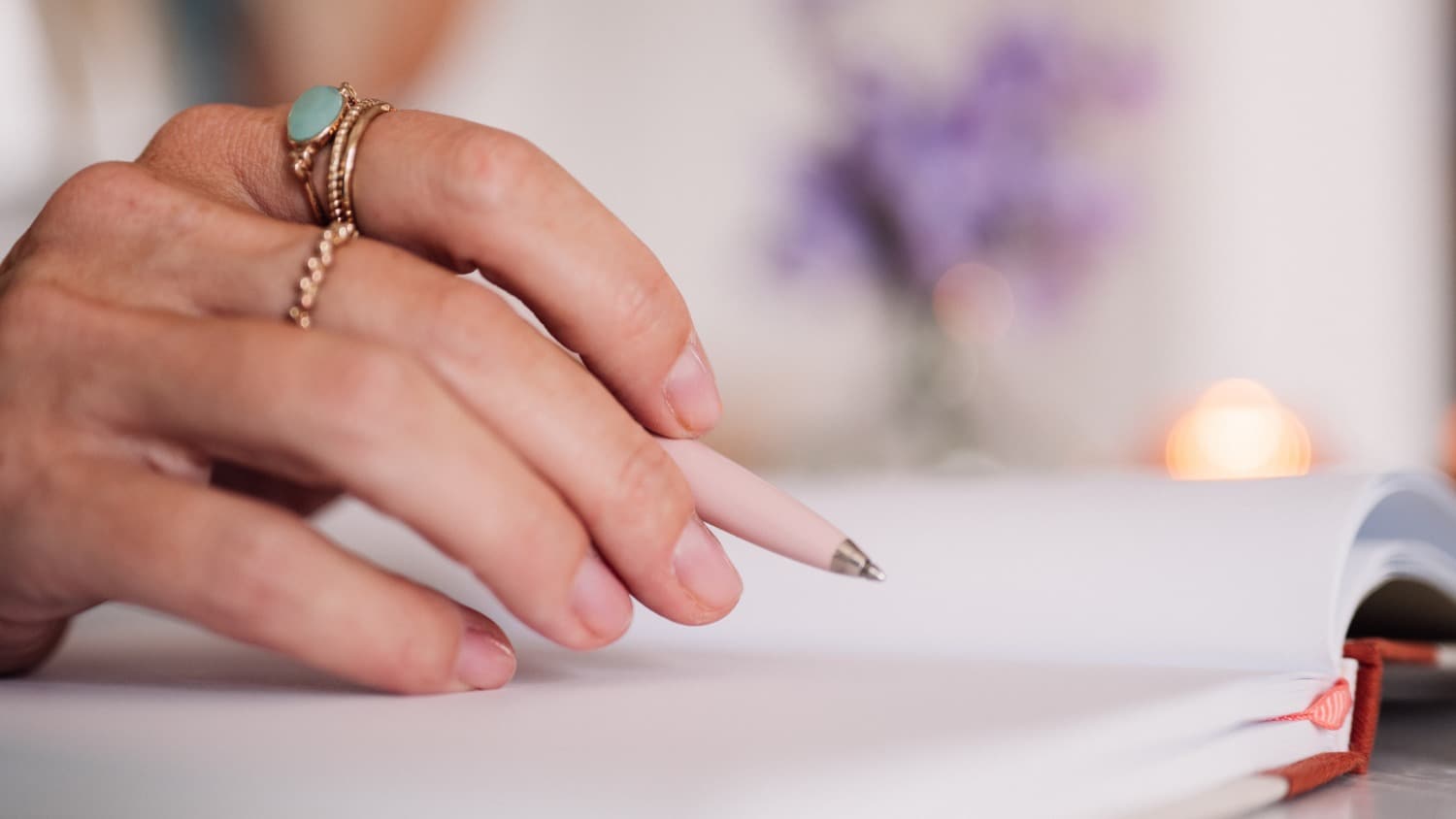
Are We Shaped by Our Childhoods?
More and more research is coming forth about how the events of our childhoods affect our adult passions and mold who we become. Some believe that childhood sets the stage for the trajectory of our lives.
This has definitely been true for me. When I was 10, my grandmother and primary caretaker took her life in my childhood home. My parents were at work, and I was the one who found her. I phoned my parents and, within moments, they, an ambulance and the police pulled up into the driveway. Commotion took over our quiet suburban neighborhood.
My grandmother was taken away on a stretcher, never to be seen again. I did not understand the permanence of death, and my parents protected me from the experience; they didn’t allow me to attend the funeral. Instead, my mother handed me my first journal – a Khalil Gibran journal with quotations across the top of each page.
My journal became my best friend and confidant. I poured my deepest sentiments onto its pages. Little did my mother know that her seemingly benign gesture set the platform for my life’s work as a writer.
Many children take such events in stride. Only looking back from the adult perspective do we realize the gravity of our earlier experiences. It was the 1960s, long before therapy was commonplace.
For hours on end, I sat on the floor of my walk-in closet and wrote about how I missed my grandmother, reflecting upon all our special times together. Writing helped me come to some level of peace about losing her. That was the beginning of my understanding that the practice of writing really does heal.
Healing Through Words
When confronted with trauma, life transitions or epiphanies, many authors have found that writing empowers and facilitates the healing process. D.H. Lawrence sat at his mother’s bedside while she was dying and wrote poems about her. He also began an early draft of Sons and Lovers, his novel where he explored their complicated, loving, and painful relationship.
Marcel Proust wrote Remembrance of Things Past while sick in bed with asthma. Flannery O’Connor wrote some of her best stories while dying from lupus. I wrote my first book, Getting Pregnant and Staying Pregnant: A Guide to High-Risk Pregnancies in 1983 while on bed rest with my eldest daughter who this year turns 40. I cannot believe how quickly time goes.
May Sarton and Anais Nin also used journaling to pull them through difficult times. In her book, Recovering, May Sarton chronicles her battles with depression and cancer. Anais Nin used her journals to help her cope with her deranged father, who left the family when she was young. Her journal entries became a springboard for her life as a writer.
When life takes an unexpected turn, journals can become our best friends. Poet Langston Hughes said, “When I feel bad, I write in order to keep from feeling worse.”
Writing to feel better is probably the most common reason people crack open their journals. Since my grandmother’s death, I have pulled out my journal during other difficult times, such as while navigating a turbulent adolescence and three pregnancies laden with bed rest.
Acknowledging its transformative results, I once again turned to journaling during my two bouts with cancer. Now in my last year of the 60s, I can say that writing has healed me over and over. I love teaching others the healing power of writing, and I write a lot about this in my book, Writing for Bliss and the Writing for Bliss Companion Journal.
Indeed, the challenges surrounding illness can become a catalyst for writing. During graduate school, one of my writing mentors told me, “When it hurts, write harder.” Writing helps clear your mind while increasing your awareness.
Write from Your Heart
The most important aspect of using writing to empower is to write from your heart. Dig down into your own emotional truth and write like nobody is going to read it. In this way, you will get a window on what is important to you – what inspires you and what irritates you, too. When you know these answers, you will be able to tap into a deeper sense of self-discovery; one that will lead to a sense of well-being and ultimately, to happiness.
The best way to start writing for healing is to find a journal and a pen that inspire you to pick them up and use them. Write for 15 continuous minutes about whatever pops into your mind. You might decide to write a letter to a deceased loved one, or another life-altering experience. You might want to write about a personal obsession.
Perhaps you want to jot down what you are grateful for or what can you do to change or put yourself on a path to greater joy. It is okay to begin writing about one thing and have it take you someplace completely different. The beauty of journal writing is its spontaneity. The idea is to just let it rip and get the words onto the page. In and of itself, this is a transformative and empowering experience.
Whatever the events of your childhood and your experiences since, through the process of writing about them, you will come to a better understanding. Though the debate continues as to whether we are shaped by Nature or Nurture, writing helps us learn more about who we truly are. In a sense, our experiences prepare us for greater growth. And knowledge, as somebody wise once said, is always empowering.
Let’s Have a Conversation:
What childhood experiences shaped who you are today? In what ways? Have you written about them in a journal? Do you think journaling has given you means to recover from childhood experiences that were traumatic?
Tags Journal Writing







I can definitely relate to this story as I did write my memoir and finished it in 2022. I started it towards the end of 2019. It took a couple years but I took my time with it and went through all of my saved pictures throughout my life that helped bring back memories. it was a very rewarding process and I have since ordered the books and have given them to my family and best friends. I have four granddaughters. I will be glad to read about it someday. I wish I would’ve had some of these memories to read about from my parents and grandparents.
Why would we not be shaped by our childhood. My mother was 16 when I was born, she was more child than woman. My father was a soldier fighting in the pacific. He was more boy than man. It was up to my grandmother to see that I was cared for. My aunts and their infants lived with us, I was breast fed by3 women. Whoever could feed me. This was 1944 , housing was almost impossible to find. Small house, close quarters. I grew up with a mother that never grew up . My father shaped by the war did grow up to be a wonderful man. My care still in my grandmothers hand. She live with us until she died at 94. Mom and dad were married 65 year.. They never fought in front of us. But they dislike each other and did I not speak unless they had to. I did know love from my grandmother. I would not be the woman I am, if not for my grandmother. mother was a child until she died at 82.
Your story would make an interesting book!
When I was separated from my now ex husband after 35 years of marriage, I began journaling every single morning for a good 2 hours. I’d get up about 5:00 am, walk down to my local Starbucks and write it all out. I was also coming off the loss of 4 very close family members within a span of seven years. I’d say that without journaling, I’d still be stuck and mired in a mess of confusion.
Late last winter, five years post divorce, I decided to dump all the completed journals. Friends encouraged me to save them and look back. That was the last thing I wanted to re-read. I did not want to re-visit those high charged emotions. I took a pic of myself, a stack of eighty journals on my shop floor with my arms flexed in a gesture of strength and triumph. (Picture attached) I had made it out of that deep, dark pit and the journals were my steps to get up and out of that awful darkness.
I still journal every morning and also meditate. These simple and calming practices win the prize for my best and most valuable coping skills/tools